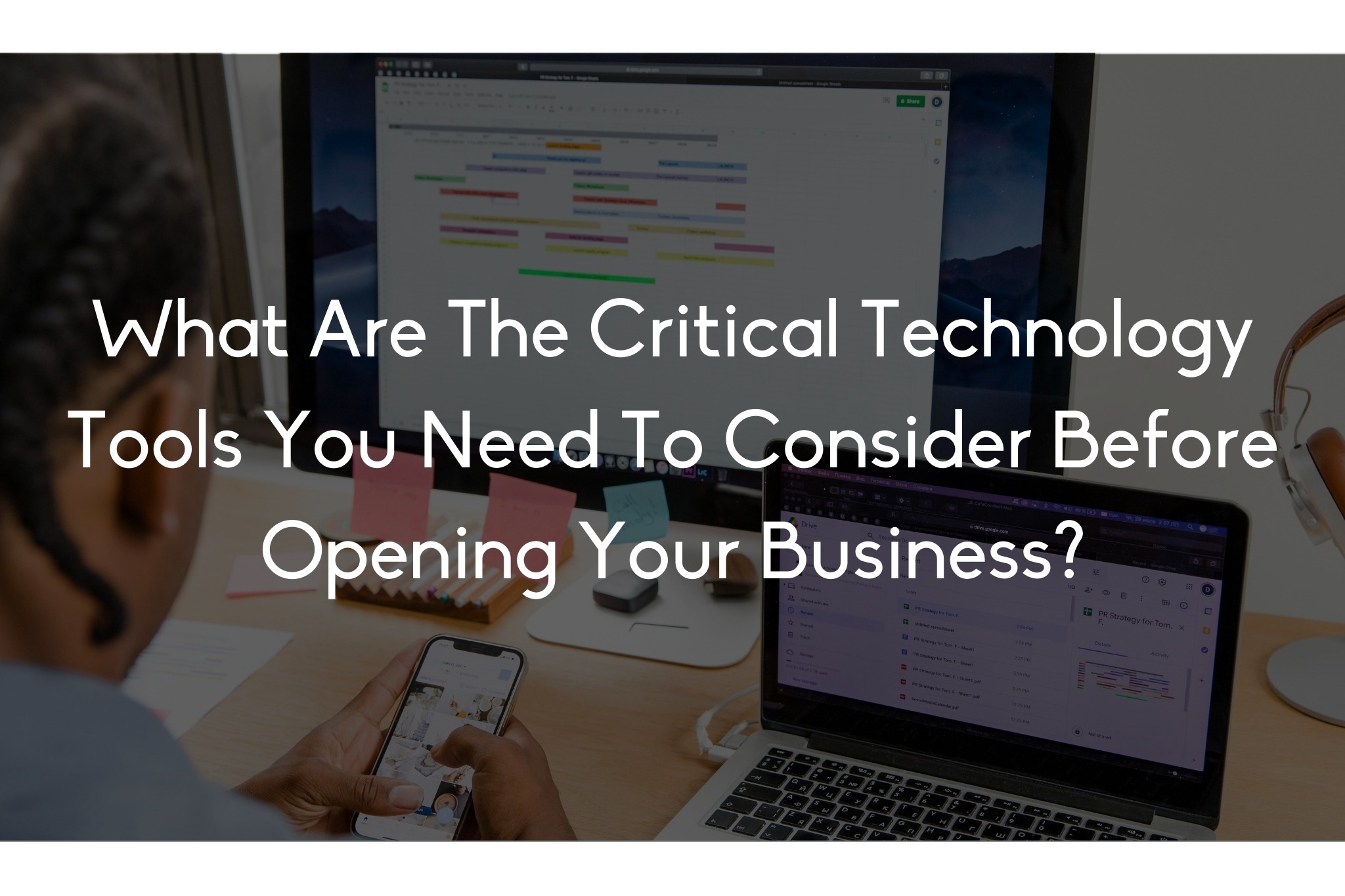
Starting a business is an exciting journey, but it comes with its fair share of challenges. Among the many decisions you’ll make, selecting the right technology tools is critical. These tools not only help streamline your operations but also set the foundation for long-term growth.
With the right tech stack, you can save time, improve productivity, and deliver a seamless experience to your customers. But with so many options out there, how do you know which tools are essential?
In this article, we’ll walk you through the critical technology tools you need to consider before launching your business. From productivity software to customer management systems, we’ll cover the essentials to help you hit the ground running.
By the end of this guide, you will have a clear understanding of the tools you need to operate efficiently, stay competitive, and meet the demands of your customers from day one.
Every successful business starts with a solid plan, and technology can help you create and execute it effectively.
These tools not only help you organize your ideas but also make it easier to share and refine them with stakeholders or team members.
Managing your finances is crucial, especially when you’re just starting out. The right tools can help you track expenses, manage invoices, and stay on top of taxes.
With these tools, you can avoid financial missteps and ensure your business remains profitable.
Building strong relationships with your customers is essential for growth. A CRM system helps you manage interactions, track sales, and analyze customer data.
A good CRM ensures you never miss a follow-up and helps you tailor your approach to meet customer needs.
If you’re selling products or services online, having the right e-commerce and payment tools is non-negotiable.
These tools make it easy for customers to purchase from you, ensuring a smooth and professional experience.

Marketing is the lifeblood of any business. To reach your audience effectively, you need tools that help you create, schedule, and analyze your campaigns.
With these tools, you can establish a strong online presence and connect with your target audience.
Protecting your business data and your customers’ information is paramount. Cybersecurity tools help safeguard your operations against threats.
Investing in cybersecurity from the start can save you from costly breaches down the line.
Staying productive is essential when juggling multiple responsibilities as a business owner. The right tools can help you manage your time and stay focused.
These tools help you prioritize tasks and ensure you’re making the most of your day.
Clear communication is the backbone of any successful business. Whether you’re connecting with customers or collaborating with your team, reliable communication tools are a must.
These tools ensure you can communicate effectively, no matter where you or your team are located.
The right technology tools can make or break your business, especially in its early stages. From managing finances to connecting with customers, these tools provide the foundation for efficient and sustainable operations.
By investing in the critical tools outlined above, you can streamline your processes, improve productivity, and focus on growing your business. Remember, the key is to choose tools that align with your specific needs and scale as your business grows.
Starting a business is challenging, but with the right technology at your side, you’re better equipped to face those challenges head-on and turn your vision into reality.


